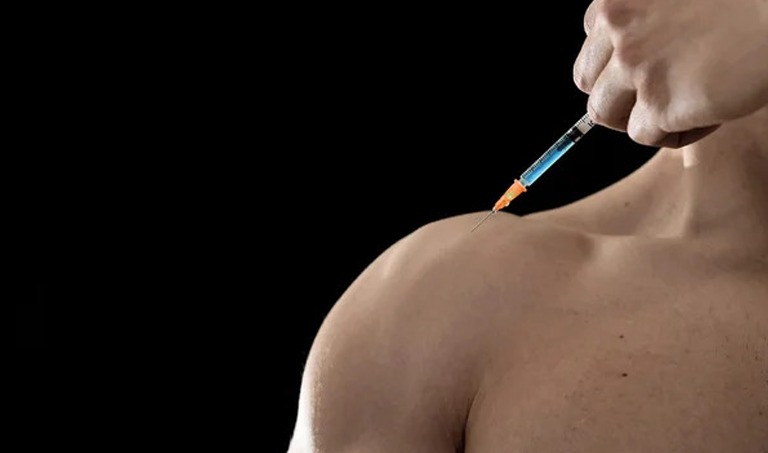As testosterone replacement therapy (TRT) continues to gain traction for managing symptoms of low testosterone, a question often emerges about the role of Human Chorionic Gonadotropin (HCG) in this treatment. If you’re considering or currently on TRT, understanding whether HCG is a necessary complement can help you make informed decisions about your health.
What is HCG?
Human Chorionic Gonadotropin is a hormone primarily associated with pregnancy, yet it also has a significant impact beyond reproductive health, particularly in men receiving testosterone replacement therapy. HCG closely resembles Luteinizing Hormone (LH), vital for initiating testosterone synthesis in the testicles. During TRT, the administration of external testosterone often suppresses natural LH production, which can reduce endogenous testosterone levels and may lead to testicular shrinkage.
By administering HCG, patients can stimulate the Leydig cells in the testes to continue producing testosterone naturally. This maintains testicular function and size, which are often compromised during standard TRT. The use of HCG is particularly strategic in patients who wish to preserve their fertility and overall testicular health while receiving testosterone supplementation.
Benefits of HCG with TRT
Incorporating HCG into a TRT plan is particularly advantageous for patients concerned about fertility and testicular atrophy. One of the primary benefits of HCG is its ability to preserve sperm production, which is key for men of reproductive age undergoing testosterone therapy. HCG works by mimicking the body’s natural luteinizing hormone, thus maintaining testicular testosterone production and ensuring the viability of sperm. Besides fertility, HCG can help maintain the natural size of testicles, preventing the shrinkage that is often a side-effect of traditional TRT.
Additionally, patients using HCG with TRT have reported better emotional well-being, improved libido, and a more stable mood. These psychological and physical benefits make HCG a significant supplement to testosterone therapy, especially for those who seek a holistic approach to hormone management and wish to maintain normal physiological functions as much as possible.
Potential Side Effects of HCG
Although HCG offers significant benefits when combined with TRT, it’s important to be aware of its potential side effects. Common issues include discomfort at the injection site, such as swelling and irritation, which are typically mild and resolve quickly. More systemic side effects can include fatigue, headaches, and mood changes, which might affect daily activities and overall well-being.
One particular concern is gynecomastia, the development of breast tissue in men, which can occur due to the altered estrogen-to-testosterone ratio that sometimes accompanies HCG use. Fluid retention is another side effect that can lead to weight gain or swelling in the extremities. It’s imperative for individuals on this regimen to have regular follow-ups with their healthcare provider. These visits allow for timely adjustments to the therapy based on side effect management and effectiveness, ensuring that the treatment remains safe and beneficial.
Is HCG Necessary for Everyone on TRT?
The need for HCG as part of a TRT regimen is highly individualized and varies based on personal health goals, particularly fertility concerns. For men who are not focused on fertility or who are beyond their reproductive years, the addition of HCG may not be necessary. HCG is primarily beneficial for those interested in maintaining fertility, as it helps sustain natural testosterone and sperm production.
It also contributes to preventing testicular shrinkage, a common side effect of TRT that can affect self-esteem and sexual function. Decisions regarding HCG should always be made in consultation with a healthcare provider who can provide personalized advice based on a comprehensive assessment of individual health needs and therapy goals.
Alternatives to HCG
If HCG does not seem like the right fit for your TRT regimen, there are alternatives. Selective Estrogen Receptor Modulators (SERMs) like clomiphene citrate can also stimulate the body’s natural testosterone production by acting on estrogen receptors. Another alternative could be adjusting the dosage and frequency of testosterone administration to minimize side effects and reduce the suppression of natural testosterone production.
How to Decide if HCG is Right for You
Making the decision to use HCG with TRT should involve a thorough discussion with a healthcare provider specializing in hormone replacement therapy. Consider your health history, fertility goals, and how you have responded to other treatments. Blood tests that measure hormone levels can also provide insights and help tailor your treatment plan effectively.
We are committed to delivering customized healthcare solutions that elevate your well-being. Our TRT treatments, which may include HCG integration, are specifically tailored to meet your individual health requirements. By selecting our services, you guarantee that your path to optimal health is expertly guided and supported by the highest standard of therapeutic practices, all within the framework provided by Optimal Health.

